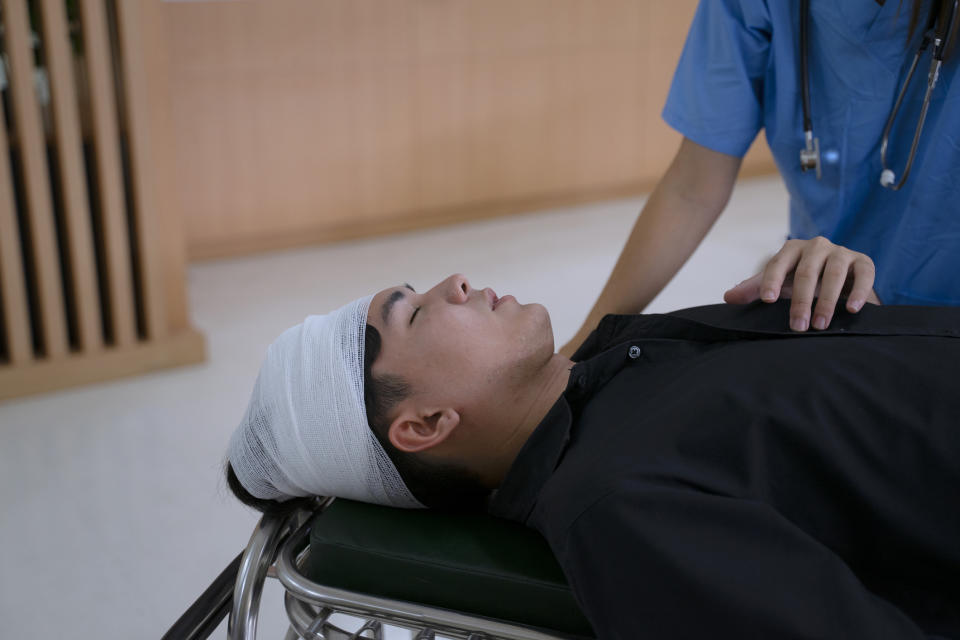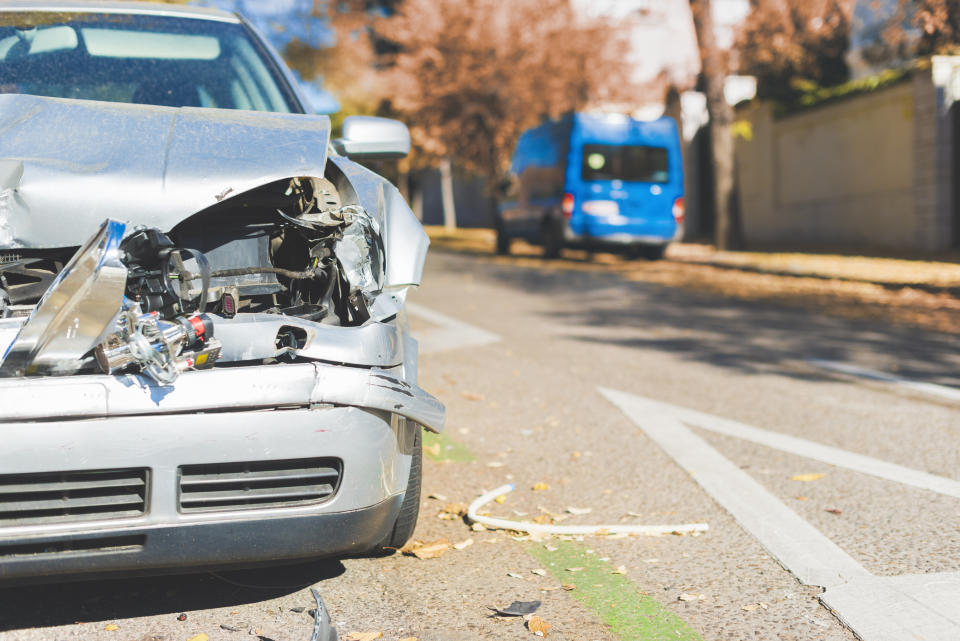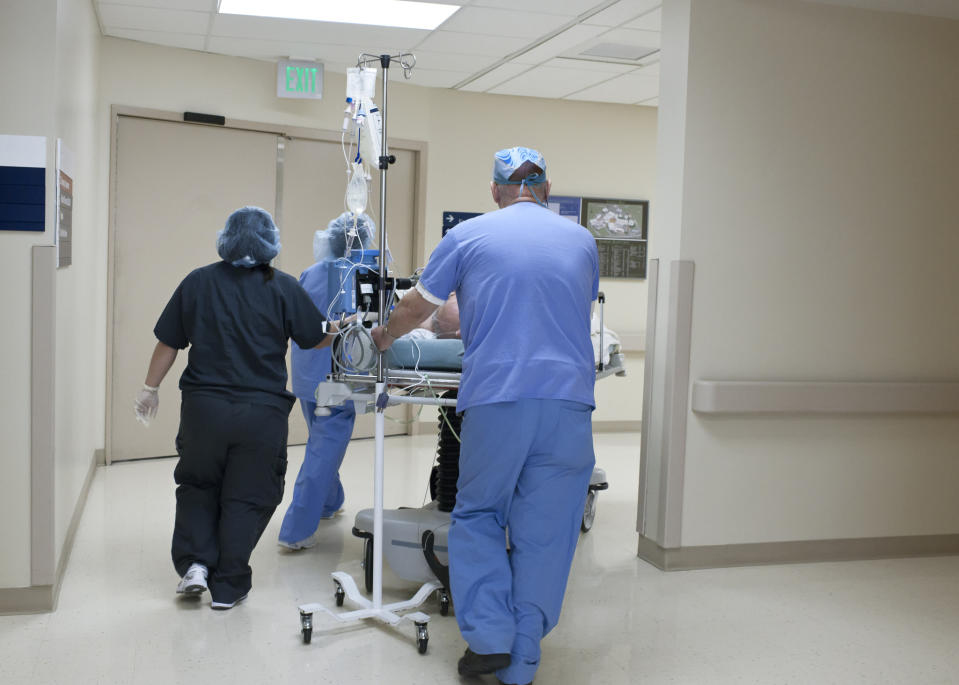We recently wrote a post where EMTs shared their best safety tips for dangerous situations. In the comments, nurses, doctors, and other hospital workers revealed their best advice as well. Here’s what they had to say:
1.“EMT here who has worked in the hospital setting. Please keep a list of your medical history, current medications, allergies, and an emergency contact in your wallet or on the emergency tab on your phone. If you’re unconscious, it helps us in treating you.”
—28 Georgia

2.“Don’t put butter or Vaseline on a burn!!! This will only make the situation worse by causing an infection. What it does is keep the heat in. Cool the burn with water, remove any jewelry (swelling will occur) and any clothing not adhered to the skin. Call 911.”
—59, New York
3.“ER nurse. DON’T go to an emergency room for things that can be handled at an urgent care. ERs get flooded with minute issues, which takes away from the care of critical patients, OR the less-critical patients will not get tended to as well as they expect.”
“Due to privacy policies, you’re not supposed to know what’s going on with other patients in the ER. We may have forgotten your warm blanket because we are down the hall trying to resuscitate someone; you just don’t realize it.”
—31, Florida
4.“ER doctor here. If you’re having chest pain that you’ve never had before, call 911 or go to the ER and get it checked out. I can’t tell you the number of families I’ve had to console because their loved one thought it was just heartburn.”
—52, Texas
“If you have chest pain, left arm pain, sudden fatigue, CALL 911 or GO TO THE NEAREST ER IMMEDIATELY! I’m an RN of 20 years, and I just lost a friend TODAY to a massive heart attack. He’d been having some intermittent chest pain for the last three days. Calling EMS even an hour sooner could have saved him. DON’T WAIT!”
—54, North Carolina


5.“Retired ER doc. If someone is injured, don’t move them, and don’t give them water. Just call 911.”
—65, New Mexico
6.“Whatever you do, don’t take the knife off when stabbed; if you keep it there, you will most likely lose less blood.”
—Anonymous
7.“I’ve told all the kids in my family that I was an EMT, then paramedic, then RN for many years, and I never pulled a dead person out of a seatbelt. But I did scrape a few off bluffs, trees, and bridge railings. Wear your seatbelt!!!”
—70, Iowa
8.“Neuro ICU nurse: Don’t mess with head injuries. Even if you don’t have symptoms at first, take it seriously. Pain after the injury can be a very insidious sign of brain swelling. I’ve seen people who were checked out ‘OK’ in exams after their accidents but went home with brain bleeds. If you’re at all in doubt, advocate for a decent workup. If the pain begins later or worsens, go back to the hospital.”
“Secondary brain injury can happen days after an accident. This refers to damage that happens after the injury incident, when the brain swells. Many secondary brain injuries do more damage than the initial impact. Take it seriously. And, please, don’t drink if you’ve had one.”
—Anonymous, 36


9.“Former ICU nurse: It isn’t fun, but fill out a health care proxy or assign a power of attorney to make medical decisions you can’t. Make your needs known, and pick someone who will carry them out. Someone who is too emotional might be too attached to listen if you say you don’t want to be saved in some circumstances. Pick someone grounded enough to listen to you.”
“Unless you have specified otherwise, all attempts will be made to save you, even if you’re living on just machines and in a miserable condition. You could be 95 and frail, but full CPR will be done, and it isn’t pretty. You can’t control what happens once you can’t speak up for yourself. If no one is appointed, your family can enter into disputes and argue about what should happen to you. This can tear apart families. It can mean you don’t get the outcome you want. I know no one wants to think about the worst but do it. You have no idea what we see and how people wind up.”
—36, Rhode Island
10.“If you think you or someone is having a stroke, don’t take aspirin or some blood thinner. Without imaging, you could be having a bleeding-type stroke, and those medications could potentially worsen things. Present to your local emergency department so we can get images first and then proceed with how to arrest you.”
“I’m a stroke doctor, so do understand how important this message is!”
—36, Illinois
11.“If you think you or someone around you is in trouble, don’t screw around. Call 911 IMMEDIATELY. There is something called the ‘golden hour’ relating to stroke and heart attack. If you get to the ER within the first hour of symptoms starting — chest pain, slurred speech, numbness, blurred vision, weakness on one side of the face and/or body, to name a few — we can almost always stop whatever’s happening.”
“But people always want to deny that it could be ‘something bad,’ or don’t want to mess up their schedule. Well, a massive stroke or death really screws up your schedule. Always listen to your instincts; we are here to help, and everyone will be happy if it turns out to be nothing. But it’s a damn good day when someone gets their brain and life saved because they weren’t an unreasonable denying horses backside.”
—53, Ohio
12.“If you witness or come upon an accident, and you feel the need to help, the first thing you need to do is be aware of your surroundings. Make sure the scene is safe; examples are down electrical wires, oncoming traffic, fuel leakage, and sparks/fire. Remember, your safety comes first. You can’t help if you get hurt.”
—59, California


13.“After a car crash in which one vehicle rear ends another, do not stand between the two cars to assess the damage. If a third car fails to stop and crashes into the two stationary cars, your legs could be crushed or even amputated.”
—71, Missouri
14.“If you’re a parent, DO carry a LifeVac with you EVERYWHERE you go. Choking deaths are horrific. I’ve taken care of adults and infants who’ve died or come close to death because of choking. The Heimlich doesn’t work for everyone — especially if you’re overweight and rescuers can’t get their arms around you.”
—31, Florida
15.“Addiction NP here. If you encounter someone who’s had an opioid overdose, give Narcan as instructed. If it doesn’t seem to work, give a second dose if available. Even if someone wakes up after the first dose, they still may need a second dose in 30–60 minutes because Narcan starts to wear off faster than fentanyl. Always bring the person to ER/clinic for eval ASAP, even if they seem OK once they wake up since an overdose can ‘restart’ after the first dose of Narcan wears off.”
—38, USA
16.“If you see an accident, do pull over and see if anyone needs emergency services. DON’T remove anyone from the car unless it’s on fire. Removing someone improperly can damage their C-Spine, causing neurologic deficit.”
—31, Florida
And finally…
17.“Don’t lie to the providers (doctors, nurses, etc.) about the circumstance of your injury or other medical history. We can’t provide proper care without all the information, and withholding information could have serious consequences. I had a patient withhold the name of a certain prescription medication because he was embarrassed, and the medication ordered by the doctor to treat his condition would have severely reacted with his prescription; it would have caused him to have a massive heart attack if his significant other had not stepped in.”
“We don’t care what you’ve taken, what substances you used, any of it. We just want to do our jobs and keep you alive. None of that information leaves the room. And besides, whatever you may be embarrassed to share, I guarantee we’ve heard something 100 times worse.”
—31, New Jersey


Fellow doctors, nurses, and other hospital workers, what are some other “emergency” safety tips more people should know? Feel free to tell us in the comments below, or if you prefer to remain anonymous, you can use this Google form.
Note: Some responses have been edited for length and/or clarity.
